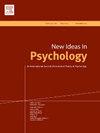验证策略使用的即时性概念对协作学习的调节:来自专家研究的结果
IF 2.9
3区 心理学
Q2 PSYCHOLOGY, EXPERIMENTAL
引用次数: 0
摘要
在协作学习过程中,群体成员之间的认知、元认知、动机和情绪等不同类型的调节问题可能会阻碍学习进程。一旦组织注意到一个问题,他们就需要针对这个问题应用一种监管策略来缓解它。然而,到目前为止,还不清楚针对什么问题应该采用哪种监管策略。因此,我们提出了策略使用的即时性概念:如果一个监管策略可以解决这个问题,那么它就被认为是直接的,而不需要进一步的策略。在本研究中,我们采用专家研究方法检验了这种直接性概念的内容效度。我们探讨了(a)专家认为哪些监管策略对哪些问题是直接的,(b)他们在多大程度上同意他们的即时性评级,以及(c)他们是否明确地将监管策略分为针对特定问题的即时和非即时策略。针对8个社会规制问题,59名专家对27个规制战略的现时性进行了评价。我们的研究结果表明,专家们可以一致地确定监管问题的即时监管策略。唯一的例外是规则问题“不相容的工作方法”和“工作量分配不公平”。此外,对于每个问题,我们可以清楚地区分各种即时和非即时监管策略。总之,我们的研究结果有力地支持了即时性概念的内容效度。未来的研究可以在教育实践中实施和研究即时性概念,以支持在协作学习过程中使用即时策略进行问题调节。本文章由计算机程序翻译,如有差异,请以英文原文为准。
Validating the concept of immediacy of strategy use for the regulation of collaborative learning: Results from an expert study
During collaborative learning, different types of regulation problems such as cognitive, metacognitive, motivational, and emotional problems between group members may hinder the learning process. Once groups have noticed a problem, they need to apply a regulation strategy for the problem to alleviate it. Yet, so far, it is unclear which regulation strategies to use in the light of what problem. Therefore, we propose the concept of immediacy of strategy use: A regulation strategy is considered immediate for a problem if it can solve this problem without further strategies necessary. In this study, we tested the content validity of this immediacy concept by using an expert study methodology. We explored (a) which regulation strategies experts regard as immediate for which problems, (b) to what extent they agree in their immediacy ratings, and (c) whether they distinctly categorize regulation strategies into immediate and non-immediate strategies for specific problems. N = 59 experts rated the immediacy of 27 regulation strategies for eight social regulation problems. Our results indicate that experts can concordantly identify an immediate regulation strategy for regulation problems. The only exceptions were the regulation problems “Incompatible Working Methods” and “Unfair Distribution of Work Load”. Additionally, for each problem, we could clearly differentiate between various immediate and non-immediate regulation strategies. In summary, our findings strongly support the content validity of the immediacy concept. Future research could implement and investigate the immediacy concept in educational practice to support immediate strategy use for problem regulation during collaborative learning.
求助全文
通过发布文献求助,成功后即可免费获取论文全文。
去求助
来源期刊

New Ideas in Psychology
Multiple-
CiteScore
4.80
自引率
3.80%
发文量
37
期刊介绍:
New Ideas in Psychology is a journal for theoretical psychology in its broadest sense. We are looking for new and seminal ideas, from within Psychology and from other fields that have something to bring to Psychology. We welcome presentations and criticisms of theory, of background metaphysics, and of fundamental issues of method, both empirical and conceptual. We put special emphasis on the need for informed discussion of psychological theories to be interdisciplinary. Empirical papers are accepted at New Ideas in Psychology, but only as long as they focus on conceptual issues and are theoretically creative. We are also open to comments or debate, interviews, and book reviews.
 求助内容:
求助内容: 应助结果提醒方式:
应助结果提醒方式:


